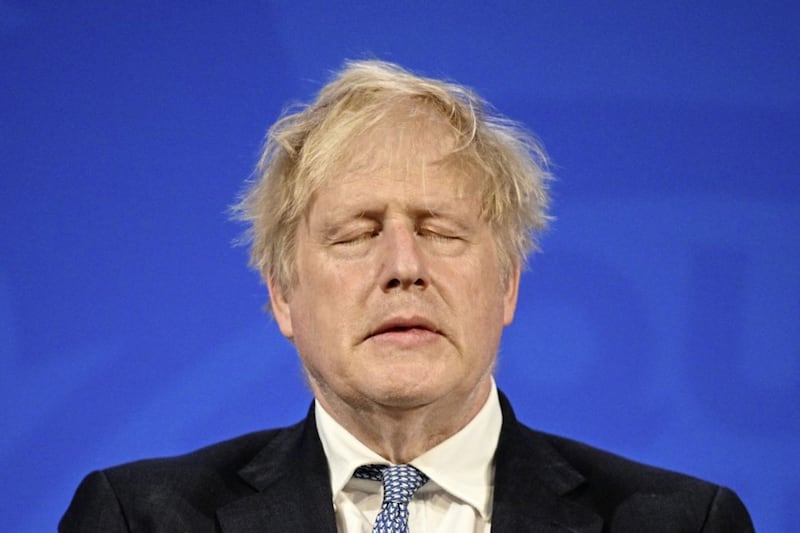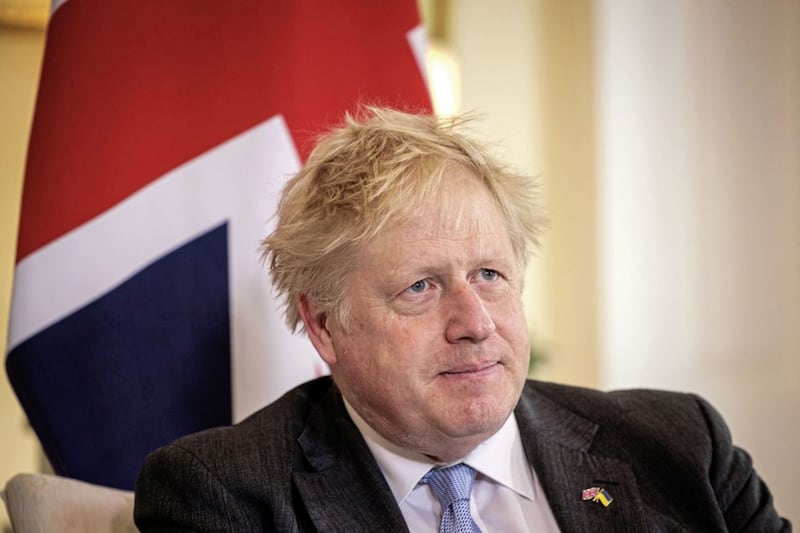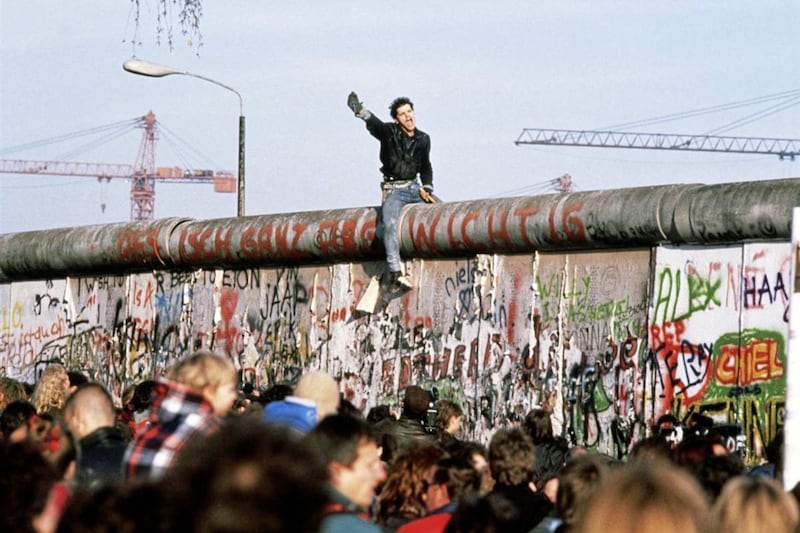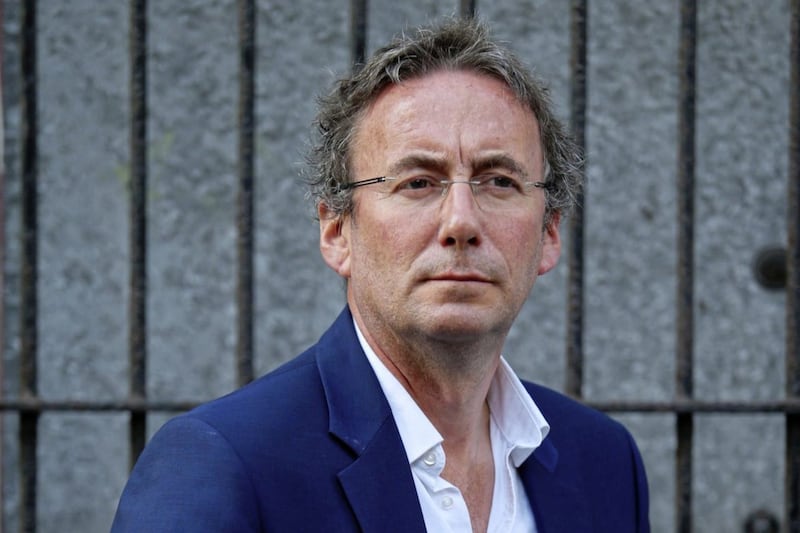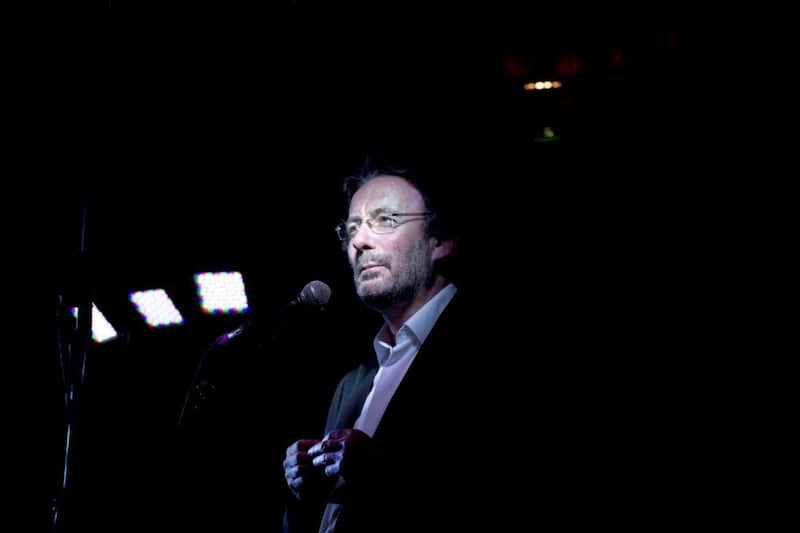The DUP. Stormont. Talks collapse.
Apart from the rising of the sun in the east tomorrow, and pointless photo-ops by British prime ministers on day trips to Belfast, what in life could be a great certainty?
Trying to resuscitate Stormont is like taking an aspirin to cure cancer. Stormont is a hollow house, a talking shop of pointlessness. As long as Stormont exists, governance by the people in the interests of all the people of Northern Ireland remains an unobtainable dream.
Ironically, even the DUP, in their latest suspension huff, have dismissively cast Stormont's existence aside, another poker chip, in their older existential struggle to define Belfast, and themselves, as just as British as Barnsley.
But no-one in Barnsley ever voted for Brexit to spite the existence of the Irish Republic. The DUP's British-in-Ireland identity is entirely separate and apart from that British-in-Barnsley identity.
Just as the brouhaha over the protocol, and the marching men, has nothing to do with the economic interests of the people of Northern Ireland.
But then why bother about real politics when the bill for your incompetence, and your own salary, will always be picked up by the £9.4 billion annual subvention from the English Exchequer?
Ultimately the DUP, as Sinn Féin has in the past, will always indulge themselves in the politics of identity, threat, and denial of their other Irish identity because they never have to pay the economic price.
Until real political change comes.
In unresolved conflicts like Ireland, as in the divided island of Cyprus, in Israel/Palestine, nothing really changes, for decades, even centuries, until one day it does. Then political change comes swiftly like the end of apartheid in South Africa or the fall of the Berlin Wall in ways that no-one ever imagined possible.
When political change comes it comes from the elite, powerful men at the top, who change their mind for their own selfish reasons and start the unthinkable - like freeing Nelson Mandela from prison and talking to the ANC about black majority rule as the white Afrikaners did. Or abandoning the IRA's armed struggle.
Or in Downing Street by giving up on Stormont rows and endlessly sustaining the Northern Irish statelet and then endorsing a so-called 'border poll' - but only after making sure the result is fixed.
Once such political change has begun, votes, democracy, border polls, violence are largely irrelevant. What was Bible anathema yesterday is Bible truth today. Belfast it turns out is not as British as Barnsley after all.
Could such political change happen in Ireland? Yes, and sooner than we think if all the elements line up together.
Step One will be the election of a pro-Irish Unity government in Dublin, a coalition even, that begins to actively campaign, with the aid of their allies in the EU and the United States, for re-unification. Who in Dublin, Brussels or Washington will or could say no?
Step Two, more crucially, requires the British government in London to think that an Ireland re-united is less trouble than an Ireland divided and that such an outcome is in what remains of the United Kingdom's strategic interest.
Step Three is to reassure sections of both nationalist and unionist communities, courtesy of the British Exchequer again, that nothing bad is going to happen; their pensions will still be paid, the doctor won't charge you 50 euro for a visit and you will still be able to keep your British passport and march down the street, on occasion, in an Orange sash.
Step Four, despite the blood curdling threats and marches, will be a foregone conclusion - reunification.
In most conflicts peace finally breaks out only after the combatants have exhausted all other possibilities.
In Ireland over the next few years we are all going to discover how exhausted all those other possibilities are apart from a United Ireland.
:: Kevin Toolis is the author of the acclaimed Troubles' chronicle, Rebel Hearts: Journeys Within the IRA's Soul.




